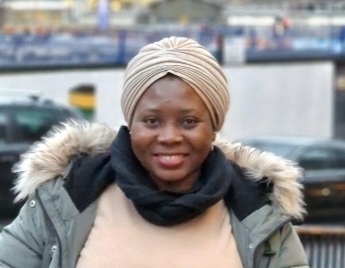
What I like about the MA Peace and Conflict Studies course
Written by Olaide Umar, a postgraduate student in Peace and Conflict Studies.
When I first applied for admission to the M.A. in Peace and Conflict Studies, I expected it would be an elaboration on public international law. Instead, it has been an interesting blend of politics and humanitarianism & conflict response modules; infused with seminars, workshops, and student-led discussions. In humanitarianism and conflict response, I was privileged to evaluate the relevance of interventions in the global order, the role of the ICRC and the Geneva Conventions in the alleviation of conflict-induced suffering, post-conflict reconstruction and development in conflict-affected societies, the political economy of peace processes, Collier-Hofflers’ debate on greed versus grievance, the doctrine of responsibility to protect and its implementation in crisis such as Darfur and Syria, and the applicability of ethics to humanitarian emergencies to mention a few.
My favorite module is Peace and Social agency, Security & Intervention where I have learned to analyze conflicts, not just from the angle of physical violence, but also through the undercurrents of political tensions and underlying drivers such as war economy profiteering that exacerbate the crisis levels. We were also introduced to the anthropological viewpoint on conflicts, which highlights the root causes of conflicts as the pivotal factors in protracted instabilities such as the Democratic Republic of Congo, Libya, and Mali.
Another interesting angle we explored, was the contention that international interventions are usually a systemic re-ordering tool of North superpowers, to impose western ideals of capitalism and democracy on its southern less developed countries under the ambit of peacebuilding and state-building interventions. This contention is fuelled by the western dominance of global institutions such as the IMF and the World Bank through which it disburses aid attached with conditionalities that further propel needy countries into a never-ending spiral of dependency.
We also evaluated the UN’s discharge of its duty to maintain international peace and security post the two world wars and the gradual decline in its credibility and global influence. We examined how well the institution has discharged this duty and critically reviewed UN peace operations in armed conflicts. We discussed the evolution of the UN’s response from conflict management, through peacekeeping missions to conflict resolution, peacebuilding which transformed into liberal peacebuilding, then post-liberal peacebuilding, and finally, to the hybridity, we have now between post-liberal peacebuilding and the local turn.
The local turn was particularly interesting because its proper development can propel the peace process towards sustainability, it can also endow the peace interventions with legitimacy via local participation and engagement. The local turn encourages the building of adequate coping mechanisms and resilience in the residents of conflict-affected societies, thereby initiating the walk toward justice, peace and reconciliation. We also explored the role of civil society actors in the pursuit of peace in fragile states and examined the blockages to the peace process in protracted crises.
It has been an interesting journey experiencing the M.A. in Peace & Conflict Studies at the University of Manchester, and I look forward to the second semester and implementing the plethora of knowledge gathered in the Nigerian political environment someday.






0 Comments